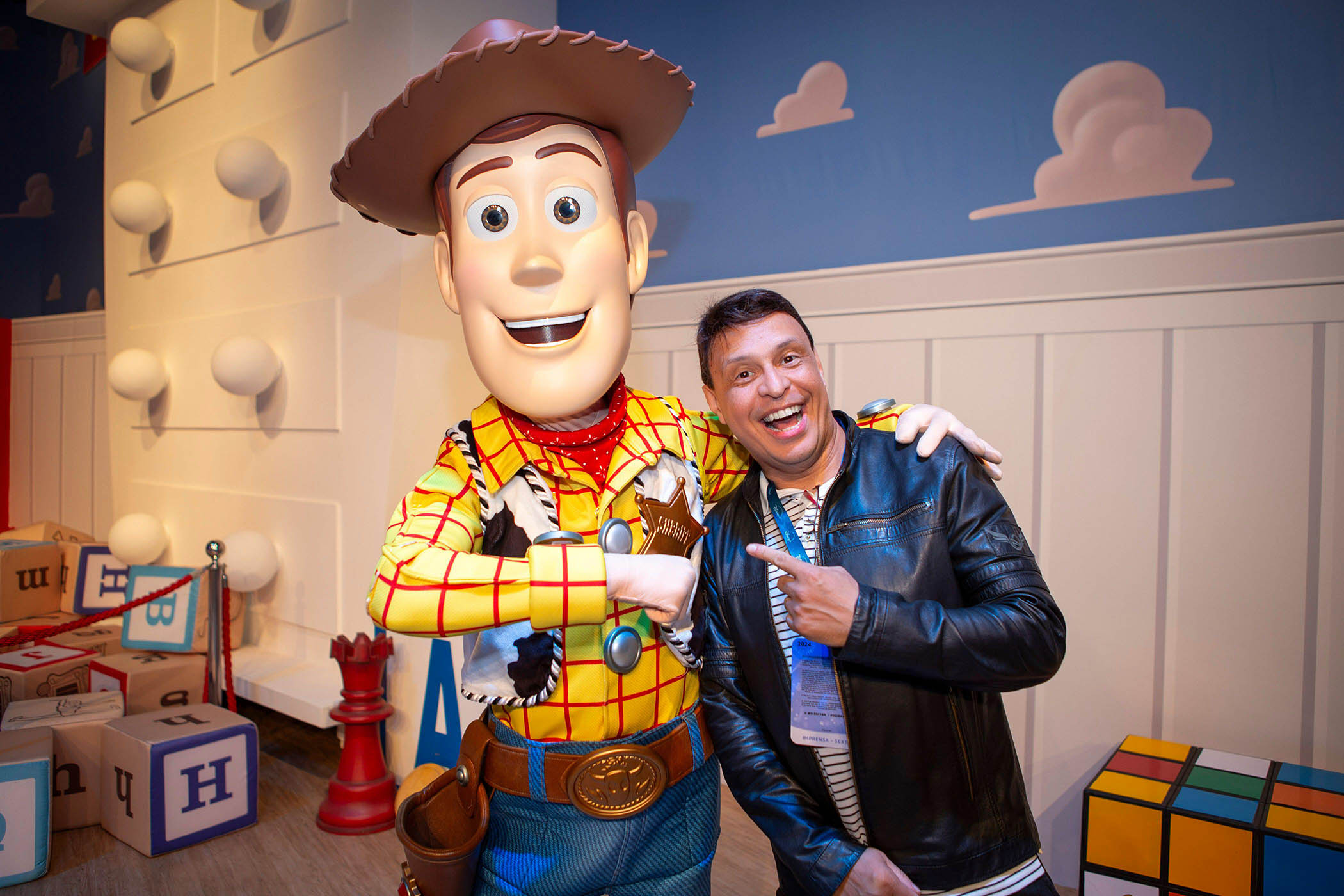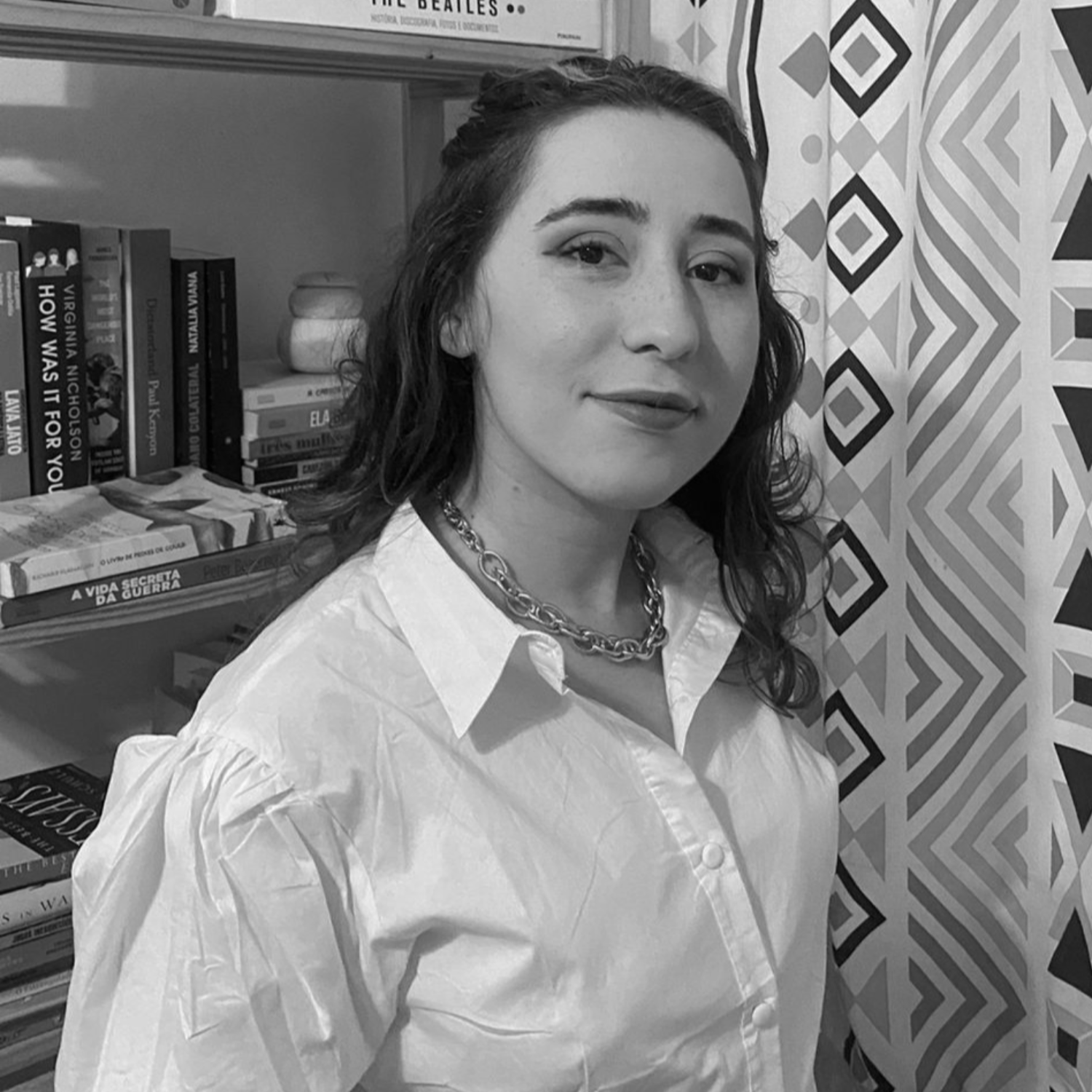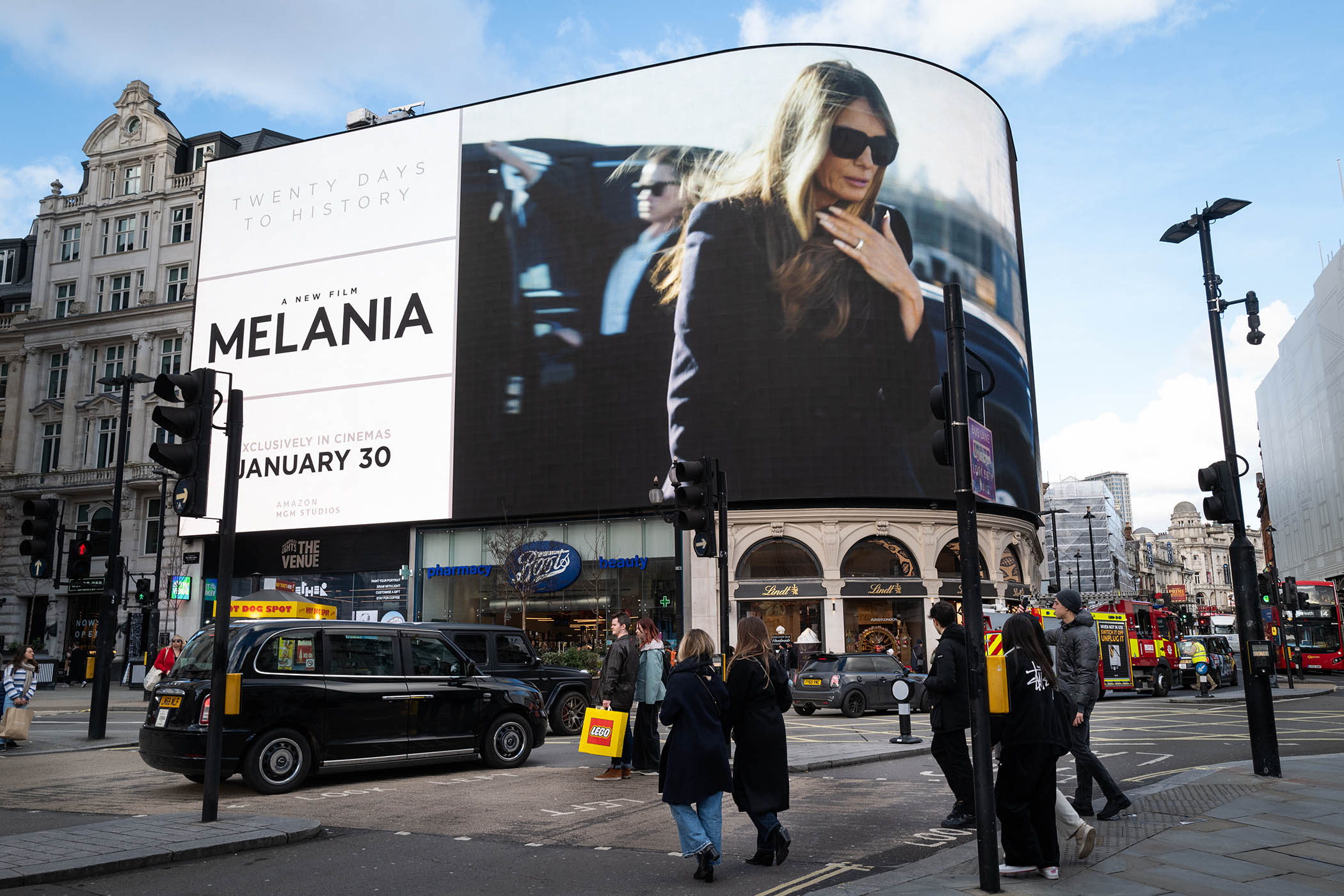The list of Brazil’s patrimônios imateriais culturais – intangible cultural heritages – which includes samba and capoeira – is about to acquire a curious new addition. In late September, a congressional committee approved a bill declaring Brazilian dubbing one of them. “Brazilian dubbing has enormous artistic, educational, cultural, historical and emotional relevance in our society. Its preservation is therefore indispensable,” wrote congresswoman Luciene Cavalcante, who proposed the bill. She echoed a widespread belief among Brazilians: we dub from English better than anyone else.
According to a 2015 poll, six in 10 Brazilians say they prefer watching dubbed, rather than subtitled, films. Dubbed films dominate Brazil’s box office: in 2021, more than 73% of cinema tickets sold online were for dubbed versions, according to a platform. Brazil sits among the world’s most enthusiastic markets for dubbing, alongside Spain, Italy and Mexico, according to a 2022 survey across 15 countries led by Morning Consult, a research firm. And the perception of Brazilian excellence isn’t just local. Stanley Kubrick once said the Brazilian version of The Shining was “perhaps the best” among five dubbed languages. Eddie Murphy has admitted that his long-time Brazilian voice actor, Mário Jorge, “fits him better” than his own voice.
“It’s hard to claim Brazilian versions are the best, but they’re certainly unique,” says Gustavo Andriewiski, manager at Delart, one of Brazil’s more traditional dubbing studios. “Before a release, there are quality screenings with several language versions of the same product. The Spanish dubbing has a theatrical, affected tone that doesn’t sound natural. For Latin America, it’s usually done with a Mexican accent, which makes audiences in other countries feel less connected. When people walk into the room and hear the Brazilian version, they say it feels like the original.”
Part of this national pride comes from history. Since the 1930s, when more than half of the population could not read, Brazil has dubbed almost everything, from Disney classics to Mexican telenovelas and Japanese anime, building a vast, professionalised industry. That love wasn’t immediate, though, as the press in the 1940s often mocked the poor sound equipment in local cinemas.
Then studios became inventive. In the 1960s, Delart’s founder, Carlos de La Riva, built his own dubbing and sound-mixing machines. The first studio to hire full-time dubbing actors, Herbert Richers, had opened a few years before. “It wasn’t just a company – it was a school for the entire sector and part of every Brazilian’s imagination,” says dubbing supervisor Erica Silva. In 1962, a decree by nationalist president Jânio Quadros required that all television content be dubbed, further boosting the industry. When TV sets became household staples, uneven broadcast signals made subtitles hard to read, another reason that dubbing thrived.
This long experience shaped Brazil’s particular mix of fidelity, creativity and consistency that turned dubbing into a cultural phenomenon. Also, from the beginning, Brazilians were fans of dubbing artists – at first because they were already famous. In 1938, when Snow White and the Seven Dwarfs arrived in cinemas, singer Dalva de Oliveira, the “queen of the radio”, voiced the princess. Carlos Alberto Ferreira Braga, known as “Braguinha”, who composed some of Brazil’s most enduring carnival hits, adapted the songs. Elsewhere, that celebrity trend came only decades later: the milestone was 1992’s Aladdin, when Robin Williams voiced the Genie.
Then Brazilians became fans of the voices themselves, even when they didn’t know the actors behind them. That’s partly because dubbing artists often keep the same roles for decades. The same Brazilian voices have been dubbing Sylvester Stallone and Will Smith for about 30 years, for example. Voice actors earn an average of $30 (£22) for each finished hour of dubbing – roughly 20 times Brazil’s minimum hourly wage of $1.30. Dubbing a feature film usually takes about two months, from the translator’s script to the recording sessions led by a dubbing director and the final mix by a sound engineer.
Brazil is not a very important market, but its consumers are early adopters of every media format – and they use them intensely
Brazil is not a very important market, but its consumers are early adopters of every media format – and they use them intensely
Renato Beninatto, Nimdzi Insights
While this consistency also exists in larger localisation markets such as Italy and Germany, Brazil’s fan culture – which fuels passionate fandoms in football and pop music – extends to dubbing. “Brazil is not a very important market, but its consumers are early adopters of every media format – and they use them intensely,” says Renato Beninatto, director at Nimdzi Insights, a global translation and localisation consultancy.
Related articles:
Brazilian dubbing also evolved to make viewers feel represented. Translators and directors rewrite jokes, slang and even songs so they sound natural in Portuguese. Other countries that dub heavily, such as Germany or France, tend to stick to literal translations. A line from the 2004 film White Chicks, for example, references a sensationalist Brazilian TV show and still circulates in memes online.
“Translation and dubbing not only made international content accessible but also helped shape Brazilian cultural identity,” write Cíntia Beatriz Oliveira and Vera Pacheco in their studies of the history of dubbing in Brazil.
Newsletters
Choose the newsletters you want to receive
View more
For information about how The Observer protects your data, read our Privacy Policy
That linguistic and cultural connection has paid off, as more engaged players also spend more on games. When the 2012 edition of Call of Duty – the first to include a full Brazilian Portuguese version – hit the market, sales in the country were reported to be 300% higher than earlier titles in the series. The industry learned the lesson. In the Brazilian version of Valorant, in 2020, one character is from the state of Bahia. The game studio even released a video showing her touring Salvador, with Brazilian singer Luedji Luna echoing in the background.
Another reason for Brazilian success lies in studios’ obsession with lip sync. “We have to make people forget that dubbing is a lie,” says Andriewiski. Voice director and actor Flavia Fontenelle explains that she tweaks words to match not only the meaning but also the rhythm and lip movements of actors on screen. Whereas in Europe, translation and dialogue writing are often separate jobs, in Brazil, the same person usually does both, and sometimes even plans the recording sessions. That overlap tends to sharpen the musicality and rhythm of the dialogue.
All of this might help explain why Brazil’s congress is paying attention to dubbing. Beyond the cultural heritage bill, the senate recently debated a proposal to ban the use of artificial intelligence tools in the process. The lower house is discussing a similar measure aimed at “protecting the quality and tradition of the national industry”. If approved, these could complicate Brazil operations for companies like YouTube, which recently launched an AI-powered dubbing tool.
At Delart, though, technology is welcome. During the pandemic, driven by streaming demand, the studio nearly doubled in size: now, alongside its original house in a quiet Rio de Janeiro neighbourhood, it operates a full building packed with recording booths and posters of The Lion King, Star Wars, Wicked and Marvel films. The company invests up to R$150,000 (about £21,000) monthly in new technology and digital security, and even has a replica cinema room to perfect lip-sync and sound mixing.
AI tools are already part of the process, says Andriewiski, “but nobody wants to lose the human element – our artists are incredible.” However, not everyone agrees. Sérgio de La Riva Goded, son of Delart’s founder, says change is inevitable. “Anyone who’s optimistic about AI’s impact on dubbing is crazy,” he says. “In a few years’ time, we’ll just be nostalgia.”
Photograph by Emerson Santos/Fotoarena/Sipa USA via Alamy



